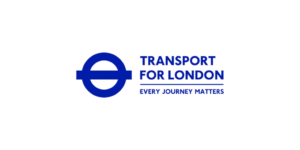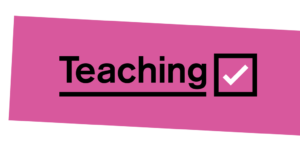
Web Developer careers guide & job profile
Code dream websites that are a pleasure to use on any device, mobile or desktop!
Getting into web developer careers
Also known as: Front end developer (how a website looks and feels), back end developer (how a website functions), full stack developer
Every day we see new ways of using the web, from shopping and social platforms to apps and rich media. The world needs web developers to code up the websites and make it happen.
Web developers often get to be creative when it comes to design flair and human psychology, too. They think about what looks good (especially if they’re also a web designer). They also think about UX, or User Experience. Is the site easy to use without getting lost or frustrated? If you click a button do you know where it will take you? A lot goes into making websites that people will want to use again and again. As a web developer, you can create things from scratch – or tweak an existing site to make it better than ever!
Working hours
As a web developer, you would typically work 30-40 hours a week. In many places, this is a standard 9 to 5 job. As a freelance web developer you can set your own hours (which could involve evening or weekend work to complete big projects in time for launch deadlines).
Where do web developers work?
Often you will work in an office as part of a digital team. It’s quite a social job, even when you’re busy. It’s becoming more common to do this job from home, as well – so long as you have a good internet connection and have the security, equipment and software you need. This is known as remote working.
How Much Money Can You Earn As A Web Developer?
These LMI Job Trends give you a sneak peek of how much you could earn starting out for this career, and how much your salary could grow with experience.
Salary guide for web developer jobs
On average, web developers earn between £18,000-£50,000 depending on the location and employer. However, with time, experience, training and promotion you can earn up to £60,000 or more if you start specialising, building up your CV and getting some high-profile or big projects under your belt.
These figures are intended as a guide only.
Skills you need to become a web developer
Useful skills to put in your CV for web developer jobs:
- Web programming skills: HTML, CSS, PHP, Javascript
- IT support skills, or technical skills in programming or web development
- Good planning and problem-solving problem solving skills
- Ability to meet deadlines
- Good communication skills, both verbal and written (you may be explaining technical issues to people who don’t understand what’s under the bonnet of a website the way you do)
How do you get these skills?
Vocational qualifications and work experience will help you build these skills over time.
Build Your Skills With the FREE Young Professional Programme

What Qualifications & Training Do You Need For Web Developer Careers?
School, college and training
When at school, you’ll benefit from having GCSEs or S grades (grades 9-4 / A*-C) in English, maths, and information and communication technology (ICT).
You may be able to start in a junior role if you can show employers you have great web development skills, even if you don’t have relevant qualifications. If this is the case, employers may want to see you’re familiar with at least one of these areas:
- Most-used operating systems and servers
- Databases and web programming
- Web design and graphics
- Networking and security
Many web developers apply for jobs once they have studied for an HND, foundation degree or degree in a subject related to IT and web technology. These are helpful because you need to know specific programming languages to be a web developer, and it also helps if you know about the industry secrets and psychology of what makes a great website. A structured course can tell you what you need to know and also give you hands-on experience of putting that knowledge into practice.
Some courses can also help you get work experience with an employer, so you have something to put on your CV to show you can do the job.
Useful IT course subjects to study:
- Web development or web design
- Digital media development
- Multimedia design
- Web content management
- Computer programming
- Business information systems
Apprenticeships
You can get into this job through completing an IT or web development apprenticeship. This gives you the opportunity to earn a salary working in digital technology while getting structured learning that leads to an industry-recognised qualification.
University and Graduates
You could do a foundation degree, higher national diploma or degree in:
- web design and development
- computer science
- digital media development
- software engineering
Career Progression
With time and experience you could move into a senior role like being a lead programmer, project leader or head of technology.
You can also specialise in particular areas, because the world of web development is huge. For example, you could build your CV in the field of e-commerce (online shopping), mobile apps or eye-popping (and user-friendly) web design.
Once you’ve built up enough experience, contacts and skills, you could become self-employed and go freelance.
See how Yogi became a WorldSkills Champion through a Web Design apprenticeship!
What Work Experience Do You Need For Web Developer Jobs?
Valuable experience for this role includes…
- work experience in a web development environment, especially if you’ve had experience of working with web and programming languages including HTML, CSS, PHP and Javascript.
- work experience involving basic digital skills or IT skills of any kind
- attending free or paid IT courses (face to face or online) in coding or web skills
- Work shadowing (even if it’s just for a day)
- Work placements in a company
- Work placements on a college or university course
How can volunteering help you get web developer jobs?
What Does A Web Developer Do?
Example daily job responsibilities
- Working with a client to make sure any new website will suit their business needs but also be a well-functioning design
- Deciding what exactly the website should do and be in order to meet the needs of its target audience (for example, is there any point in creating a shopping website for eight-year-olds? Not really, since they don’t have banking cards to buy online)
- Exploring what type of content the site will host (videos? Articles? Items for sale?)
- Deciding what kind of functionality the site will need (will it need a contact form to handle enquiries, or will it need to show the latest articles, or will it need an e-commerce area to handle online sales? Will users log in to comment and explore members-only parts of the site?)
- Giving guidance on layout, styles, and colours (do you know about the psychology of colour, and how very few websites use the colour green unless they are about health or nature? Look up the psychology of colour in web design, it’s really interesting!)
- Writing programming code to build, maintain, tweak (change) or fix a website
- Building the main structure of a website (also known as the architecture or framework)
- Testing the website and spotting any bugs (or code errors) and technical issues
- Uploading the site onto a server and registering it with search engines so it can be found in online searches
- Considering issues like e-commerce, web security and access from a technical point of view.
These Youth Friendly Employers offer great opportunities
These Youth-Friendly Employers might be able to help you get great digital jobs, training or experience! Take a look.
Digital Career Guides
View job descriptions with average UK salary, useful qualifications and a variety of routes into this career.
Digital Career Guides
View job descriptions with average UK salary, useful qualifications and a variety of routes into this career.
See All Our Youth-Friendly Employers

























YES! I Want More Free Careers Help...
So what are you waiting for? Grab your future.
























